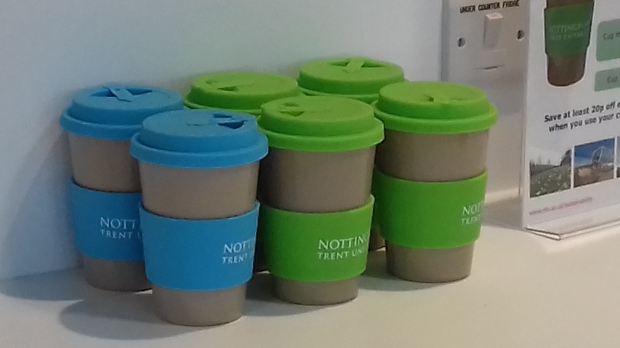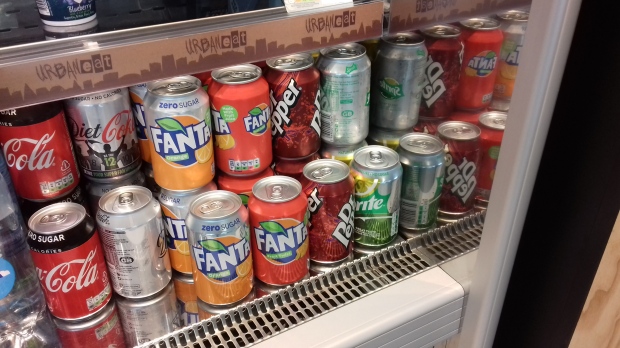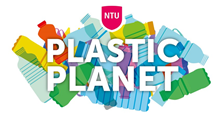Plastic was first widely used in the 1950s and since then more than 8.3 billion tonnes of plastic has been produced with at least 79% of this ending up in a landfill. Here at NTU Catering Services, we have directed one of our main focuses on the reduction of this plastic waste. As a department, we have already made substantial improvements and given ourselves ambitious objectives for the future including to reduce plastic waste by 70% in the following year. Some of the things we have done so far include-
- Reusable cups – Eco-friendly reusable cups have been introduced into all catering outlets with customers being encouraged to purchase these by being offered a discount incentive for each hot drink they buy when using them. The cups were chosen as they are made from bamboo material which is extremely eco-friendly as it is fast growing, requires minimal water and no fertilisers or pesticides, absorbs over four times more CO2 than trees, and produces up to a third more oxygen. The use of reusable mugs has increased in all outlets with some reaching as much as 40% of hot drink sales.

- Disposable cups – Previously plastic disposable water cups were provided for customers, these have now been eradicated from circulation with customers being encouraged to use reusable water bottles or purchase paper cups. This has removed 116,000 plastic cups from landfill annually. Reusable steel water bottles are also being sold at the university rather than plastic as they are long-lasting and recyclable without degradation resulting in a sustainable closed-loop system.
- Plastic bottles– In 2017/18 182,774 soft drinks were purchased in plastic bottles by NTU Catering Services, these have all now been replaced with aluminum canned drinks which are easily recyclable and use less raw materials to manufacture and produce fewer emissions than plastic bottles.

- Takeaway containers – Previously all takeaway containers were made from polystyrene which is a non-biodegradable material that produces ozone-damaging chemicals during production and contributes negatively to the climate. These containers have now all been replaced with a sugar-based product which is 100% biodegradable, compostable, renewable and requires less energy to produce.
- Disposable cutlery -In 2017/18 168,750 individual items of plastic cutlery were purchased by the department this has now been replaced with a cornstarch-based alternative which is up to 68% carbon neutral, 100% biodegradable and has a much lower carbon footprint than the PS plastic standard cutlery.


-This blog post was written by Mandy Gordon, who works for NTU catering services. Many thanks from the Green Academy team.
Want to write a blog post that’s featured on this site? Email us your ideas today at GreenAcademy@ntu.ac.uk!